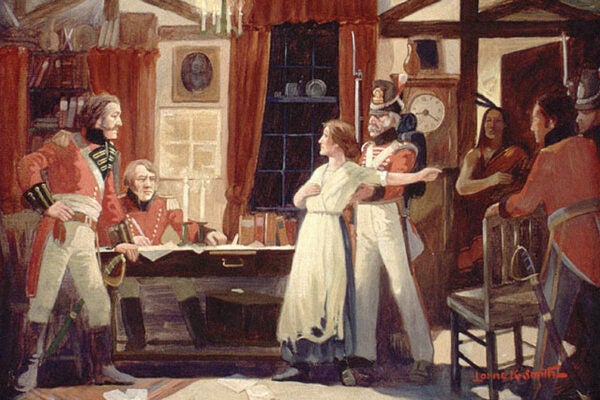Seventy-five years ago in July of 1942, the battle for Stalingrad began. The Soviet city was a major prize for the advancing Axis military machine, which had invaded the USSR the previous year. Not only was the city named after Hitler’s archenemy, but it was an industrial powerhouse and a gateway to the oil fields of the Caucuses.
The battle did not end as the Nazis had hoped, however, despite their claims of victory. In November of 1942, a massive Soviet counter-offensive encircled the invaders. Axis forces, including Italians, Romanians, Hungarians, and Croatians as well as Germans, surrendered in early February 1943. The casualties on both sides totaled some two million. With nearly three-quarters of a million men on the Axis side, it was the first major defeat for the Nazis in World War II, and the war’s turning point.
The defeat presented the Nazis with a propaganda quandary. How could the Russians, portrayed as subhuman Slavs by the Nazis, have defeated the Aryan Germans? (The other members of the Axis were given little attention.) Jay W. Baird explores how the “myth of Stalingrad” was built by the Nazi totalitarian system, which created “an empirically unverifiable ‘new reality,’ as Hannah Arendt calls it, to replace objective truth.”
Virtually none of the news of what was happing in Stalingrad was allowed to reach civilians in Germany in the winter of 1942-1943. The triumphant bulletins marking the Axis advance were simply not followed up once the advance was halted.
Afterwards, the German Sixth Army’s destruction was portrayed as “a heroic sacrifice to protect western civilization and the German homeland from the underworld of the Jewish-Bolshevik culture destroyers.” Baird continues, “The forging of the myth of Stalingrad affords significant insight into the development of the nazi [sic] wartime propaganda effort; more important, it demonstrates that in the totalitarian state individuals—indeed, entire armies—must be prepared to sacrifice themselves for false principles and false Führers.”
Yet the tightly scripted and mythologized rendering of the defeat was not all that persuasive. A quarter of a million men spoke louder than the drumbeat of the state’s media control. Rumor was unstoppable. “The German home front was never really convinced by the Stalingrad propaganda. To the German people Stalingrad spelled disaster, and Hitler lost much of his prestige as a strategist.”
Propaganda, however, was backed up by terror, “ready to combat the sceptics [sic] and to drive them to an outward show of trust and conformity which often concealed disbelief, fear, or apathy. Only final defeat would shatter the elaborate structure based on propaganda, myth, and terror.”







